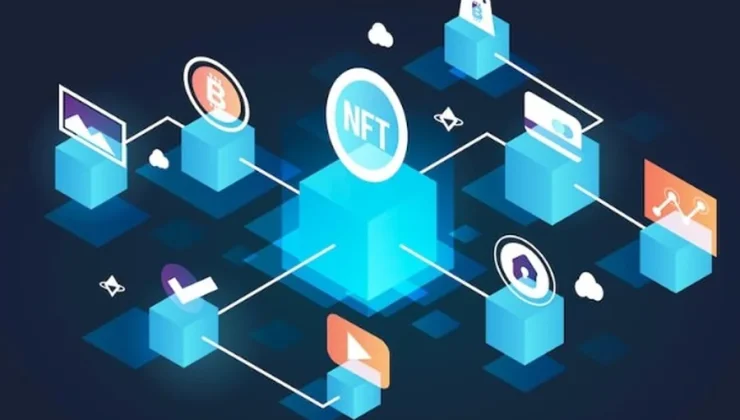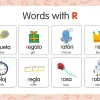Transform Real Estate Investment: Stobox Makes Property Tokenization Simple and Accessible

Real estate has always been the domain of the wealthy. Million-dollar minimums, complex paperwork, and months-long transactions have kept ordinary investors on the sidelines while institutional players dominated prime property markets. But what if you could own a piece of luxury real estate for the same amount you’d spend on a nice dinner?
The answer lies in real estate tokenization, a revolutionary approach that’s transforming how we think about property ownership and investment. This isn’t just another financial innovation – it’s a fundamental shift that democratizes access to one of the world’s most stable and profitable asset classes.
Breaking Down Barriers: From Million-Dollar Minimums to Affordable Shares
Traditional real estate investment comes with enormous barriers to entry. Want to invest in commercial properties? You’ll need hundreds of thousands or millions of dollars upfront. Interested in luxury developments? Prepare for extensive documentation, accreditation requirements, and lengthy approval processes that can take months to complete.
These barriers exist because physical properties can’t be easily divided. A $10 million commercial building is exactly that – a single, indivisible asset that requires massive capital investment. This reality has created a two-tier system where institutional investors enjoy access to premium opportunities while individual investors are relegated to REITs or crowdfunding platforms with limited control and transparency.
Real estate tokenization changes this equation entirely. By converting property ownership into digital tokens, a $10 million building can be divided into millions of individual shares, each representing a fractional ownership stake in the underlying asset. Suddenly, premium real estate investments become accessible to anyone with a few thousand dollars to invest.
This democratization goes beyond just lowering financial barriers. Traditional real estate investment requires extensive knowledge of local markets, legal structures, and property management. Tokenized real estate simplifies this complexity, allowing investors to participate in professionally managed properties without needing to become experts in commercial real estate operations.
The Liquidity Problem: Why Real Estate Has Been Stuck in the Past
Real estate’s biggest weakness has always been liquidity. Unlike stocks or bonds that can be sold within minutes, real estate transactions typically take months to complete. Property owners facing financial emergencies or investment opportunities elsewhere often find themselves trapped by the illiquid nature of their assets.
This liquidity problem affects everyone in the real estate ecosystem. Property developers struggle to raise capital quickly when opportunities arise. Investors miss market timing because they can’t exit positions rapidly. Even wealthy individuals find significant portions of their net worth locked in properties they can’t easily monetize.
The traditional real estate transaction process involves numerous intermediaries, each adding time and cost. Real estate agents, lawyers, title companies, inspectors, and lenders all play essential roles, but their involvement extends transaction timelines and increases costs substantially. A typical commercial real estate sale can take six to twelve months from listing to closing.
Tokenized real estate addresses these liquidity challenges directly. Digital tokens representing property shares can be traded 24/7 on blockchain-based marketplaces, providing investors with unprecedented flexibility to enter and exit positions based on market conditions or personal financial needs.
How Tokenization Actually Works: Digital Ownership Made Simple
The concept of real estate tokenization might sound complex, but the underlying principle is straightforward. Think of it as creating digital certificates of ownership that represent shares in a property, similar to how stock certificates represent ownership in companies.
Here’s how the process works in practice. A property owner or developer creates a legal structure that holds the real estate asset. This structure then issues digital tokens on a blockchain, with each token representing a specific ownership percentage in the property. Token holders receive legal rights to their proportional share of rental income, appreciation, and other benefits associated with property ownership.
The blockchain serves as an immutable ledger that records all token transactions and ownership transfers. Unlike traditional property records that exist in various government databases and can take weeks to update, blockchain records are instantly updated and globally accessible. This creates unprecedented transparency in property ownership and transaction history.
Smart contracts automate many aspects of property management and investor relations. Rental income distribution, dividend payments, and even some property management decisions can be programmed into the blockchain, reducing administrative costs and ensuring consistent execution of investor agreements.
Global Access, 24/7 Trading: The New Real Estate Marketplace
Traditional real estate markets operate within geographic and temporal constraints. Investors typically focus on local or national markets due to regulatory complexity and information asymmetries. Market hours are limited by business operations, and cross-border transactions face significant legal and financial hurdles.
Tokenization creates truly global real estate markets. An investor in Asia can easily purchase shares in a luxury development in Miami, while a European investor can participate in Canadian commercial projects. Geographic boundaries become irrelevant when ownership is represented by digital tokens that can be transferred instantly across borders.
The 24/7 nature of blockchain networks means real estate investment never sleeps. Unlike traditional markets that close on weekends and holidays, tokenized real estate can be traded continuously. This global accessibility opens new opportunities for both investors and property developers to connect across international boundaries.
Real estate tokenization also enables innovative investment strategies that were previously impossible. Investors can quickly diversify across multiple properties, geographic regions, and property types. Portfolio rebalancing becomes as simple as trading tokens rather than selling entire properties.
Smart Contracts and Automation: Eliminating Traditional Middlemen
The traditional real estate ecosystem relies heavily on intermediaries who facilitate transactions but add significant costs and complexity. Real estate agents, property managers, escrow companies, and various service providers all take fees that reduce returns for both investors and property owners.
Smart contracts automate many functions traditionally handled by these intermediaries. Rental income can be automatically distributed to token holders based on their ownership percentages. Property expenses can be deducted transparently before distributions are made. Even some governance decisions can be automated based on predetermined rules agreed upon by token holders.
This automation doesn’t eliminate all human involvement but reduces reliance on intermediaries for routine operations. Property management companies may still handle physical maintenance and tenant relations, but financial operations become largely automated and transparent.
The cost savings from reduced intermediation can be substantial. Traditional real estate transactions often involve fees totaling 5-10% of transaction value. Tokenized real estate can reduce these costs significantly, improving returns for both investors and property owners while maintaining necessary oversight and compliance.
From Canada to Florida: Real Projects, Real Results
Stobox’s platform demonstrates real estate tokenization in action through partnerships with legitimate property developers across North America. Project and Construction Management Inc. (PCM) in Ontario represents the company’s first Canadian client, bringing luxury home construction into the tokenized investment space.
In Florida, partnerships with Repository RWA showcase how tokenization can transform high-value real estate markets like Miami’s Design District and South Walton County developments. These projects represent hundreds of millions in real estate value being made accessible to global investors through fractional ownership.
These real-world implementations prove that real estate tokenization has moved beyond theoretical concepts into practical applications. Investors can participate in actual property developments with real rental income and appreciation potential, not speculative digital assets with unclear underlying value.
The success of these initial projects creates templates for broader adoption across different property types and geographic markets. As regulatory frameworks mature and more developers embrace tokenization, the variety and scale of available investment opportunities will expand dramatically.
Compliance and Security: Building Trust in Digital Real Estate
Regulatory compliance represents one of the biggest challenges in real estate tokenization. Property ownership involves complex legal frameworks that vary significantly across jurisdictions. Securities regulations add another layer of complexity when tokens represent investment opportunities offered to the public.
Stobox addresses these challenges through comprehensive compliance infrastructure that handles regulatory requirements across multiple jurisdictions. The platform operates under various licensing regimes and maintains the legal structures necessary to ensure tokenized real estate investments meet applicable securities and property laws.
Security considerations extend beyond regulatory compliance to technical infrastructure protection. The platform utilizes advanced security measures including multi-party computation technology that ensures private keys are never stored in single locations, dramatically reducing risks while maintaining user control over their investments.
Key security and compliance features include:
- Licensed and regulated operations across multiple jurisdictions
- Multi-party computation for enhanced private key security
- Automated compliance monitoring and reporting
- Transparent audit trails for all transactions and ownership changes
The Future of Property Investment: What Comes Next
Real estate tokenization represents just the beginning of a broader transformation in how we conceptualize and trade ownership rights in physical assets. As blockchain technology matures and regulatory frameworks evolve, we can expect to see tokenization expand into new property types and investment structures.
The integration of artificial intelligence and machine learning into tokenization platforms will enable more sophisticated investment strategies and risk management. Predictive analytics could help investors identify opportunities and optimize portfolio allocation across tokenized properties.
Future developments may include:
- Integration with Internet of Things devices for real-time property monitoring and management
- Automated property valuation using AI and market data analysis
- Cross-chain interoperability enabling token trading across different blockchain networks
The ultimate vision extends beyond individual property tokenization to entire real estate ecosystems operating on blockchain infrastructure. Imagine cities where property ownership, zoning decisions, and municipal services are all managed through transparent, automated systems that eliminate corruption and improve efficiency.
As more institutional investors, property developers, and individual investors embrace tokenization, the technology will mature rapidly. The companies and platforms that establish themselves as trusted infrastructure providers during this early phase will likely dominate the tokenized real estate landscape for years to come.
The transformation of real estate investment through tokenization isn’t just changing how we buy and sell properties – it’s creating entirely new possibilities for global wealth creation and financial inclusion. For the first time in history, premium real estate investment opportunities are becoming accessible to everyone, not just the wealthy elite.






